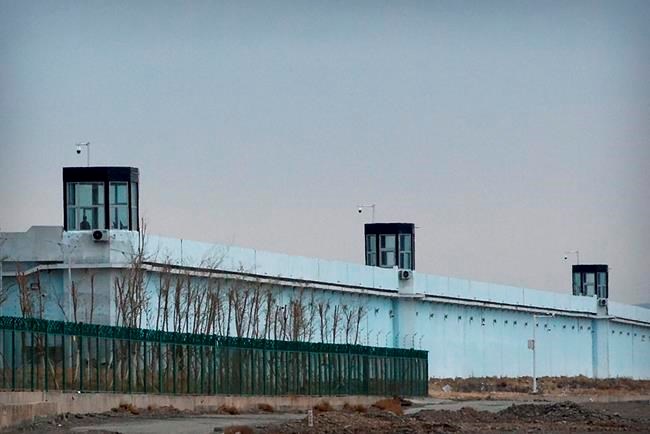OTTAWA — Prime Minister Justin Trudeau says there is a fundamental difference between Canada's troubled relationship with Indigenous Peoples, and China's systemic abuse and human rights violations against ethnic Muslim Uyghurs.
Trudeau says Canada knows its relationship with Indigenous Peoples is broken but it had a Truth and Reconciliation Commission and is working to try and address the issues.
China, he says, isn't even willing to admit there is a problem.
"Where is China's Truth and Reconciliation Commission?" Trudeau asked at a news conference outside his Ottawa home Tuesday.
"Where is their truth? Where is the openness that Canada has always shown, and the responsibility that Canada has taken for the terrible mistakes of the past, and indeed, many of which continue into the present?"
His comments came shortly after a diplomatic showdown between Canada and China at the United Nations Human Rights Council in Switzerland Tuesday.
Canada's ambassador to the UN in Geneva, Leslie Norton, read a statement on behalf of 44 countries urging China to allow “immediate, meaningful and unfettered access” so independent observers can visit its western Xinjiang region.
At the same meeting Chinese envoy Jiang Duan demanded Canada stop its violations of human rights in its own backyard.
“We urge Canada to immediately stop violations of human rights,” he said, adding that UN bodies should “keep following the human rights issues in Canada.”
“Canada has also repeatedly used human rights as an instrument to promote its political agenda,” Jiang said.
He criticized Canada's past mistreatment of Indigenous Peoples and the recent discovery of the remains of more than 200 children at an Indigenous residential school in Canada. He called for a “thorough and impartial investigation” into cases of crimes against Indigenous Peoples and faulted racism and xenophobia in Canada.
China's statement about Canada came with the support of Russia, Belarus, North Korea, Iran and Syria, mainly countries with whom Canada's relationship is strained, if there is one at all.
Canada's statement had the backing of 44 countries on five continents, though the list is dominated by North American and European allies.
"We are gravely concerned about the human rights situation in the Xinjiang Uyghur autonomous region," Norton said, in a statement backed by 43 other countries.
She cited credible reports of arbitrary detention and widespread surveillance, as well as "torture or cruel, inhuman and degrading treatment or punishment, forced sterilization, sexual and gender-based violence, and forced separation of children from their parents by authorities."
"We urge China to allow immediate, meaningful and unfettered access to Xinjiang for independent observers, including the High Commissioner, and to urgently implement the Committee on the Elimination of Racial Discrimination’s 8 recommendations related to Xinjiang, including by ending the arbitrary detention of Uyghurs and members of other Muslim minorities."
Conservative foreign affairs critic Michael Chong said his party is encouraged the Liberal government is working with Canada's allies on this issue, but he said it still refuses to call the atrocities against the Uyghurs a genocide.
"Recognizing that a genocide is taking place is essential to taking action under international law," Chong said in a statement.
"We reiterate our call for the Trudeau government to follow Parliament's lead by recognizing the Uyghur genocide, work with other allies to do the same, and introduce new effective measures to ban imports produced with forced Uyghur labour."
UN High Commissioner for Human Rights Michelle Bachelet has been trying since the start of her tenure in 2018 to arrange a visit to Xinjiang and she said Monday she hoped to carry one out by year's end.
Norton acknowledged to the meeting Canada has "historically denied the rights of Indigenous peoples through assimilationist policies and practices."
“We know that the world expects Canada to adhere to international human rights standards," she said. "We, too, expect no less of ourselves.”
Trudeau said Canada has been making attempts to do so through a long journey towards reconciliation.
"China is not recognizing even that there is a problem," he said. "That is a pretty fundamental difference. And that is why Canadians and people from around the world are speaking up for people like the Uyghurs who find themselves voiceless, faced with a government that will not recognize what's happening to them."
This report by The Canadian Press was first published June 22, 2021.
— with files from The Associated Press
Mia Rabson, The Canadian Press


